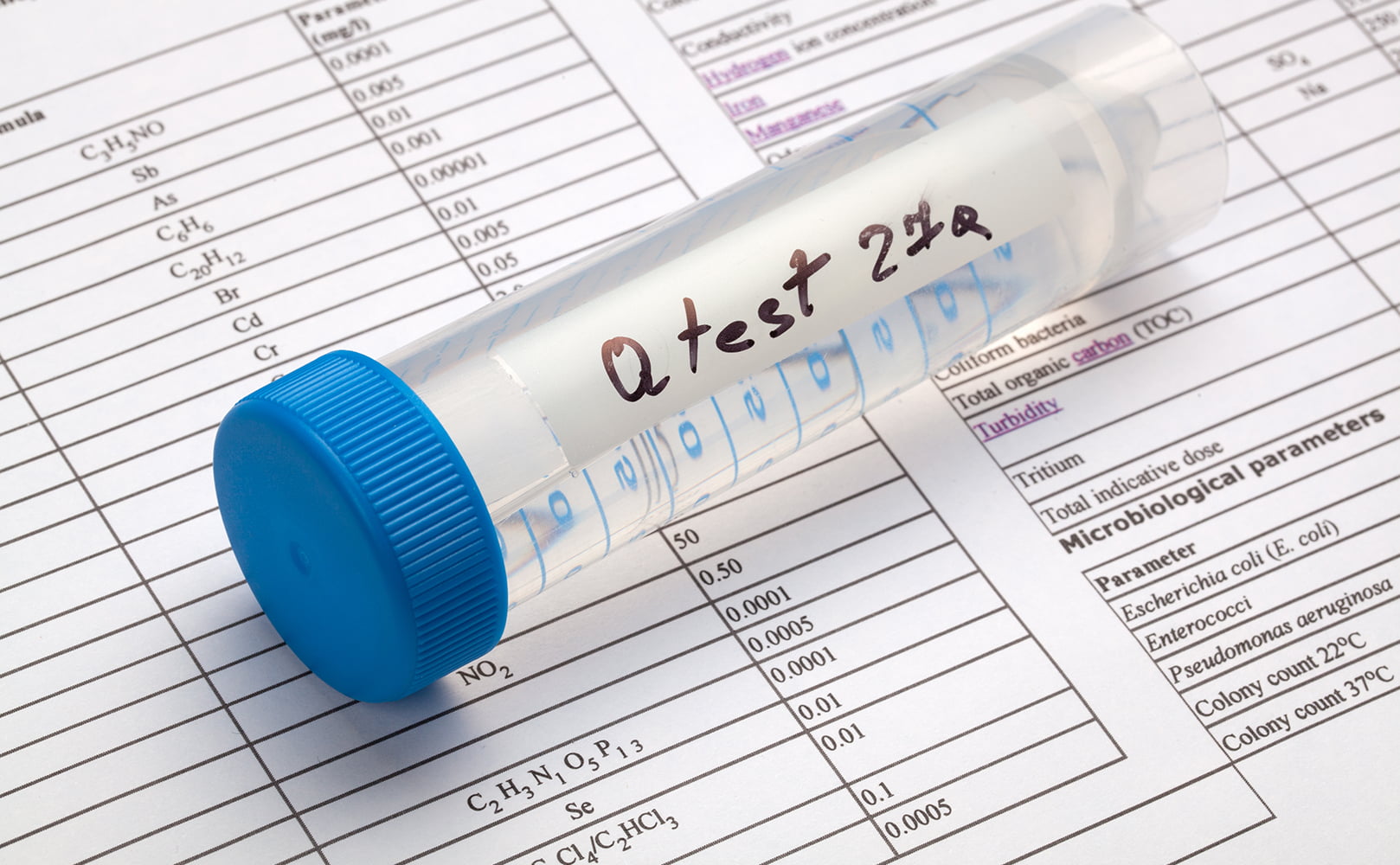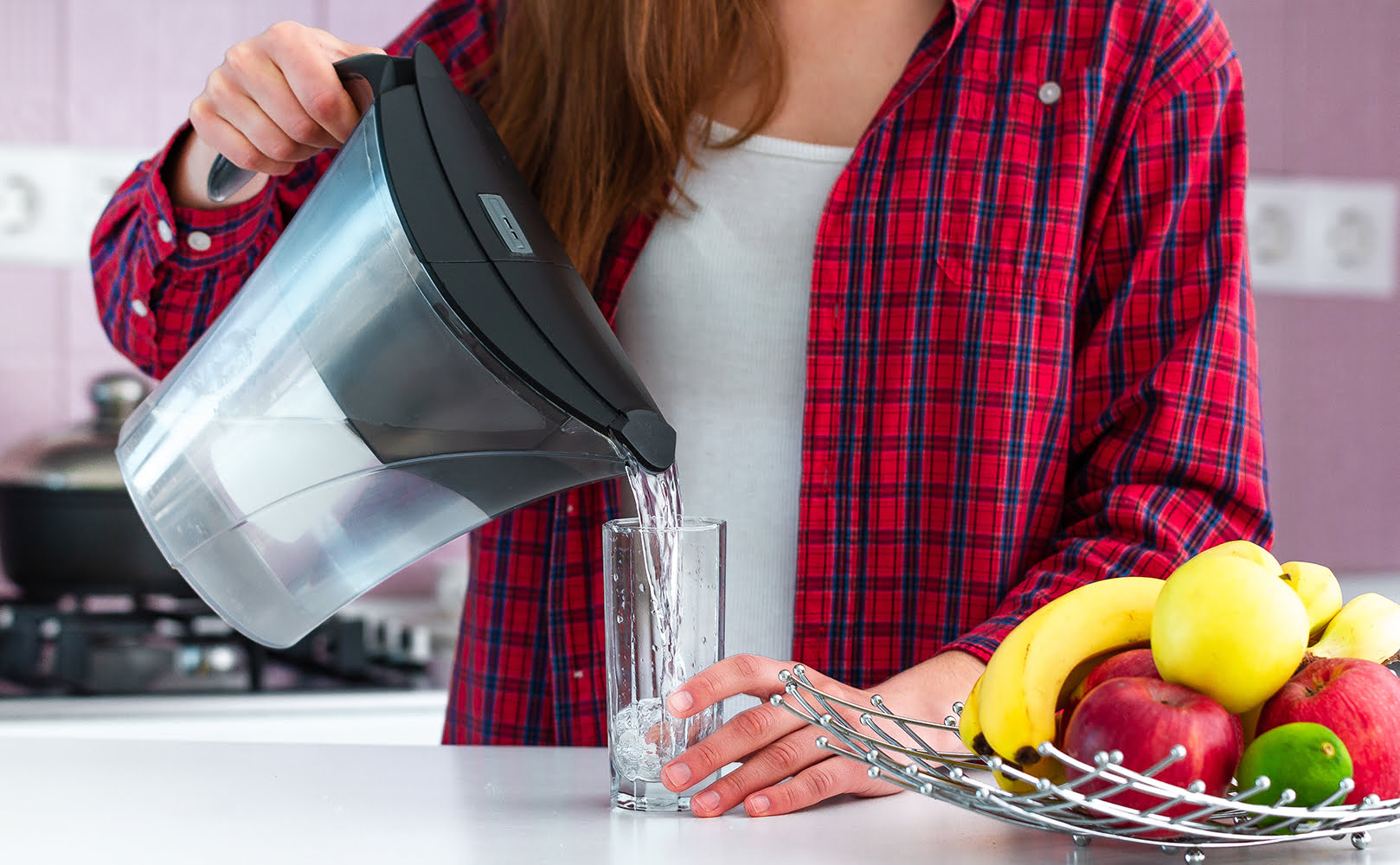Question Answered: Are Water Filter Pitchers Worth It?
Written by: Gene Fitzgerald // Last Updated: Jan 4, 2023
This page may contain affiliate links. If you buy a product or service through such a link we earn a commission at no extra cost to you. Learn more.
Unless the water in your home starts to smell or taste weird, most people don’t give it a second thought. That’s human nature at its best.
But once they know what contaminants exist in unfiltered tap and well water, they scramble to look for the perfect and easiest way to filter it.
Enter water filter pitchers, and boom – problem solved. Just fill one with water and let it stay on the counter for a while. As soon as the water passes through the filter cartridge, it trickles down to the bottom reservoir all nice and clean. Instant access to safe water; blissful, isn’t it?
Water filter pitchers are the perfect amalgamation of convenience and affordability. However, a common concern is how do these pitchers compare to other, heavy-duty water filtration systems, and do they even work as advertised?
Don’t worry; we have all the answers. Today, we shall bust the myths and straighten out all the facts related to water filter pitchers.
Key Takeaways
- A water filter pitcher is a convenient and affordable solution when your home water holds contaminants, bad smells, or if it tastes weird.
- Not all water pitchers are created equal. They differ in what specific contaminants they target.
- It is always best to have your water tested and know what contamination you are facing in order to buy the most appropriate water filter pitcher.
Do Water Filter Pitchers Really Work?
According to a Water Quality Survey by Consumer Reports, water filter pitchers are the second most popular choice for home water filtration. They rank next in line to water filters integrated into refrigerators.
That right there is proof that water filter pitchers do work. However, consider the factors discussed below to understand how different brands and models vary in performance.
Not All Water Filter Pitchers Are Created Equal
When considering buying a filter water pitcher for your house, remember that every model is designed for a different purpose.
Some units feature a single small stage of carbon-based filtration that only elevates the taste and smell of water. In contrast, some pitchers use multiple filter media, including ion exchange and ceramic, to target extremely harmful contaminants like lead and PFAS.
Therefore, it’s wise to look for NSF certifications to figure out which contaminants can be removed by which filter pitcher.
No model can eliminate all unwanted substances though. Hence, if the level of contamination in your water is too high and diverse, you will have to opt for a more comprehensive water filtration system.
Knowing What’s in Your Water
Never judge a book by its cover, and never judge your water by its looks. This is because there may be numerous contaminants in your water that go unnoticed simply because they are invisible to the naked eye.
The safest way to find out your water’s chemistry is to test it. Either use a DIY water test kit or send a sample to a certified laboratory to get detailed results.
Alternatively, you can request a report from your local water supplier that states the percentage of contaminants present in your supply. Remember, this report doesn’t always give you a clear picture as water quality is also affected by distribution channels and the plumbing in your house. In addition, there exist no water quality reports for private wells.
Advantages of Water Filter Pitchers
Here are a few reasons why you should get a water filter pitcher without delay.
Better Water Taste and Smell
Pitcher water filters are designed to remove unwanted odors and tastes from your water, the most significant and common problem with tap water. By removing chlorine, pitchers make your water more palatable and help you keep up your daily dose of hydration.
Contaminant-Free Water
As long as you choose an NSF-tested or certified filter, you can be sure that your water is free from a number of harmful contaminants, like the following:
- Fluoride
- Microplastics
- Lead
- Arsenic
- Cadmium
- Chromium
- Disinfection byproducts
- Perfluorinated chemicals
- Chlorine
- Chloramine
- Microorganisms
- Pesticides
- Drug residues
- VOCs
Safe and contaminant-free water ensures better health for your family and pets.
Ease of Use
Perhaps the most significant reason for the roaring success of water filter pitchers is the ease of usage. Even though the technical aspect of filtration is vast, these jugs simplify water filtration down to the core.
As long as you replace the filter cartridge timely, the convenience is unrivaled.
Affordability
Compared to heavy-duty water filter systems, pitchers don’t burn a hole in your pocket. Priced at a maximum of $50 a pop, they are readily available at local grocery stores and online.
Eco-Friendliness
When you bring home one or two pitchers, you can ditch bottled water for good. Apart from the fact that a quarter of all bottled water is just plain tap water, the environmental impact is far worse.
Single-use plastics have long polluted our earth. Therefore, it’s wise to bid farewell to all products adding to the waste.
Small & Lightweight
A filter pitcher is lightweight and compact, making it easy to store at home and on the go. Many people also bring their water filters to their vacations to avoid having to buy expensive bottled water.
Disadvantages of Water Filter Pitchers
Here are a few problems associated with water filter pitchers that may force you to reconsider your purchase.
Replacement Filter Cost Adds Up
While the pitchers themselves are relatively inexpensive, they require frequent cartridge replacements. Depending on your model, the filter elements last between one to three months and can cost around $5 to $50.
When you add up the total yearly expense for replacement filters there are no noticeable cost savings compared to many other point-of-use filtration systems like under sink and countertop filters. You may even end up paying more in the long run.
Substandard Filtration
Some manufacturers of water filter pitchers on the market over-advertise filtration capabilities. In essence, the water trickles down so fast; the filtering process cannot be thorough. The worst news is that a poorly designed pitcher could introduce bacteria to your water, too.
This is because when carbon filter media is being used for too long, it can develop a biofilm of microorganisms.
Similarly, if your water is highly contaminated, it may require multiple stages of filtration. Water filter jugs are not designed to accommodate pre or post-treatment of the water supply; thereby, they just hover over the tip of the iceberg.
Small Capacity
Most pitchers have the capacity to hold half a gallon of water at maximum. For an average-sized family, this means you are repeatedly refilling and waiting for the filtered to be ready for drinking.
Slow Filtration
When you fill your filter pitcher, it takes on average fifteen minutes for all of it to get processed. Unless you have multiple water pitchers, you’d quickly run out of filtered water, especially with a big family.
Difficult to Clean
The design of many units makes it difficult to clean them thoroughly. The curves, crevices and hollows can quickly become breeding grounds for bacteria if left dirty for long.
If you have any thoughts about the question, are water filter pitchers worth it, please don’t hesitate to leave a comment below!
Information provided on BOS is for educational purposes only. The products and services we review may not be right for your individual circumstances.
We adhere to strict editorial guidelines. Rest assured, the opinions expressed have not been provided, reviewed, or otherwise endorsed by our partners – they are unbiased, independent, and the author’s alone. Our licensed experts fact-check all content for accuracy. It is accurate as of the date posted and to the best of our knowledge.



